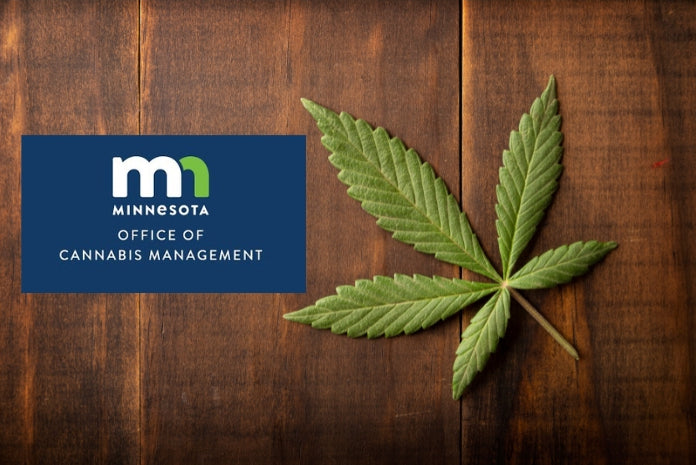The state’s high court ruling on the controversial issue of hemp-based intoxicating cannabinoids poses a potential threat to the safety of Maryland consumers, according to legislative and regulatory officials.

As 2023 rapidly comes to a close, the continuing narrative and legal struggle over the legality of products containing hemp-derived intoxicants rages on in several high-profile state cases across the country. One of those states is Maryland.
This past July, a group of Maryland hemp companies filed a lawsuit against the governor and state agencies over a new law that severely limited the market for hemp-based products. In that suit, filed against Gov. Wes Moore, the Maryland Cannabis Administration, and the Alcohol, Tobacco, and Cannabis Commission, the Maryland Hemp Coalition asserted that the state was attempting to create a monopoly for licensed cannabis companies by enforcing cap limits on THC concentrates in items containing CBD as well as severely restricting licensing.
Under the new law, CBD-based products such as gummies, topicals, and extracts containing more than 2.5 milligrams of THC per package are now illegal to sell in Maryland without a retail cannabis license.
In addition, the statute also explicitly prohibits items containing the controversial hemp-derived cannabinoid delta-8 THC. According to the details of the lawsuit, the new limits will effectively eliminate most products on the market.
The new law allows licensed retailers to sell these items; however, in their lawsuit, the Coalition contends that hemp operators face prohibitive restrictions in obtaining a license and are, therefore, facing a no-win situation.
The economic impact of the new law could be truly devastating. According to hemp industry estimates, more than $560 million in CBD sales will be lost, and as many as 4,200 jobs could be in jeopardy as 370 businesses could close and an additional 60 could move out of state.
In an interview with the Baltimore Banner, Nevin Young, an attorney representing the hemp industry, said, “My clients, who have been lawfully selling these products for years, are suddenly in a position where they are being told they can’t sell their products without a license, and yet the obstacles to getting a license are nearly insurmountable.”
"My clients, who have been lawfully selling these products for years, are suddenly in a position where they are being told they can’t sell their products without a license, and yet the obstacles to getting a license are nearly insurmountable.”
- Nevin Young, Attorney Representing the Maryland Hemp Industry
As a result of that lawsuit, this past October, Circuit Court Judge Brett R. Wilson ordered an immediate injunction against the new law, allowing for the temporary resumption of hemp-derived product sales until the case is settled. His ruling allowed for Maryland hemp businesses to continue operating. However, it left many health officials in the state concerned over their efforts to guarantee consumer safety in the cannabis sector.
Following Judge Wilson’s ruling, William Tilburg, director of the Maryland Cannabis Administration, said, “The Administration was disappointed to learn of the preliminary decision in Washington County Circuit Court allowing for the continued sale of unregulated, untested, and intoxicating hemp-derived products."
"The Administration was disappointed to learn of the preliminary decision in Washington County Circuit Court allowing for the continued sale of unregulated, untested, and intoxicating hemp-derived products."
- William Tilburg, Director of the Maryland Cannabis Administration
Regulators like Tilburg believe the judge's injunction order severely restricts the state's ability to ensure the safety of items containing THC derivatives, especially those derived from hemp, saying that cannabinoids like delta-8 and delta-10 THC are not required to undergo testing and have zero labeling and manufacturing standards to meet.
Now, as if the situation was not already rife with intense drama from both sides, the state’s Supreme Court has stepped into the fray to add its opinion to the polarizing political and legal maelstrom. According to multiple local and national media outlets, Maryland’s highest court declined to review Judge Wilson’s ruling last week, leaving his injunction in place.
The unexpected decision left many state officials stunned and frustrated. By allowing for the continued sale of hemp-derived THC products, regulators and lawmakers believe the court’s ruling, like Wilson’s injunction, will significantly harm the state’s ability to guarantee consumer health and safety in the market sector.
The Maryland case is just one of a growing number of state lawsuits aimed at challenging laws targeting the sale of hemp-based items. Similar suits have been brought in Florida, Texas, Arkansas, Georgia, Alaska, and Virginia, with mixed results, adding more legal and economic fuel for both sides.
Many industry advocates and stakeholders were hoping the 2023 Farm Bill renewal would once and for all provide definitive legal guidance regarding hemp-derived intoxicants. However, because of the House Speaker's chaos and immediate need to address the potential government shutdown, lawmakers were forced to extend the current Farm Bill through 2024.
The next 12 months will be critical not only for the hemp industry but the nation as a whole. With wars raging across the globe, climate change wreaking havoc, and the economic woes that began during the COVID-19 lockdowns still plaguing most nations, 2024 could indeed be a truly historic period for hemp and humanity.






































